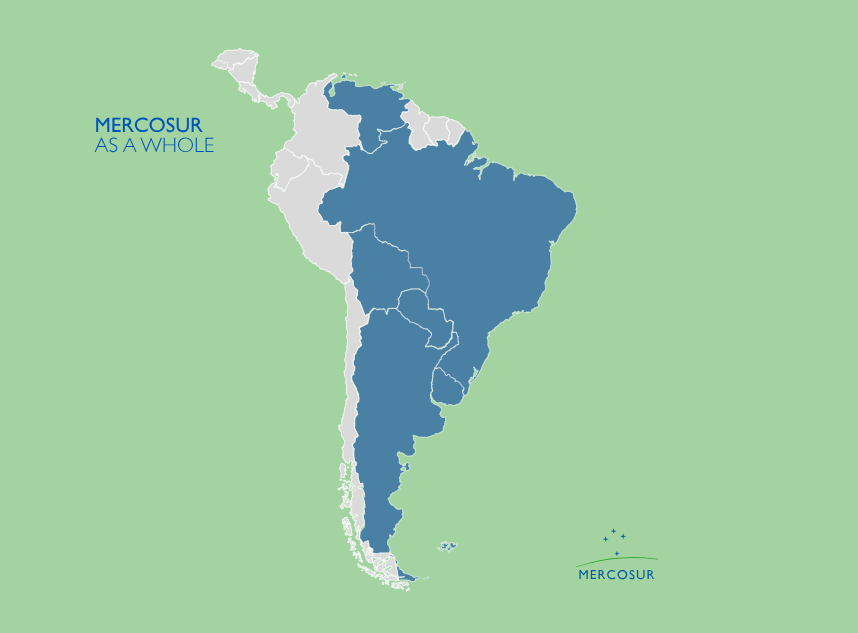Stop the EU-Mercosur deal and protect our farmers!
South America: a fascinating mix of heartiness, resilience and amazing gastronomy, which flows out of the enormous agricultural sector, which is strongly embedded in the culture.
Precisely this is the aspect we must not overlook when we talk about the upcoming trade agreement between the EU and Mercosur.
The EU-Mercosur trade agreement and its deal to cut/reduce import tariffs for agricultural products from the Mercosur countries is a mistake we simply cannot ignore. It is my profound belief that this deal will jeopardise food security in Europe.
A different type of family business
Having lived in Argentina for many years while working in the agricultural sector, I travelled all over South America. I know from personal experience how things work over there. I clearly remember my first visit to an ‘estancia de ganado’ – or cattle ranch – on the Argentine pampas. We drove for hours on dirt roads between fields full of beautiful Hereford cows and their calves, but still had not reached the end of the estancia. The enormous scale of the ranches is something we simply cannot comprehend here in Europe.
Although these are also family businesses, in Mercosur a family farm means that the land is owned by a family that lives in the (capital) city and only visits the ranch a couple of times a year and otherwise lives a life of luxury on the proceeds of their livestock. Even the poultry and swine farms are many times larger than over here in Europe and are often owned by large corporations rather than being a family business. Not to mention the scale of the arable and horticultural sector, where thousands of hectares per farm are common.
Production methods are of course totally different from Europe, with fewer regulations on the use of medication, a flexible allowance for the use of pesticides and use of antibiotics as growth promoters, something the EU banned in 2006. It will not come as a surprise to anyone that labour costs are much lower than in Europe. Production costs for Mercosur farmers are therefore a lot lower than for their counterparts in Europe which need to comply with more regulations and need to pay more for labour.
Agriculture is the backbone of our society
These differences between our agricultural models mean that fair competition between the two continents is impossible. This is not a criticism, it is simply the reality. Sectors such as beef, poultry and sugar will immediately feel the impact of this deal. These imports are generally dismissed as ‘only a couple of per cent’, but this ignores the sensitivity of price mechanisms and how this could hit our rural communities.
My fellow MEPs who champion the trade agreement with the Mercosur countries (Argentina, Brazil, Paraguay and Uruguay) keep stressing the strategic value of this deal, and I understand their good intentions. Especially now that we face great geopolitical uncertainty. Yet the question is: does this agreement genuinely strengthen the autonomy of European food supply? Agriculture is not just any sector – it is the backbone of our society. After all, we cannot live without food.
The level playing field of the European Commission is an illusion
To compensate for the negative impact on our farmers, the European Commission is setting up a compensation fund of 1 billion euros. Yet when I talk to our farmers, I see dynamic, passionate people who just want to produce as well as they can without having to rely on compensation funds. A fund does not solve the problem. The very fact that the European Commission wants to set up a fund in advance tells us that they are not that confident about the absence of negative effects for our agricultural sector.
Then there is the crucial issue of supervision. Monitoring animal welfare and food safety standards, such as the use of antibiotics and pesticides, is a huge challenge. Especially when you are thousands of kilometres away. In fact, it is naive to think that this can be monitored at all. After all, there is little or no obligation to register the use of medication on farms and most antibiotics are administered via animal feed and/or water. On top of this, in the case of antibiotics there are potential health risks for Europe arising from the introduction of resistant bacteria via imported meat.
Food security is defence
The focus of the European Parliament seems to be entirely on defence now. Let us be clear: agriculture and food security are an essential component of Europe’s defence mechanism. As it stands, the Mercosur deal undermines that vision. Therefore, BBB is unable to support this trade agreement as long as agriculture is part of it.
Author: Jessika van Leeuwen | Member of the European Parliament for BBB | 22-08-2025
Follow Jessika on her socials:

